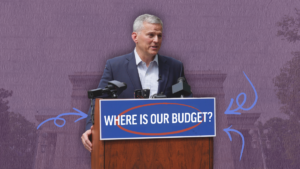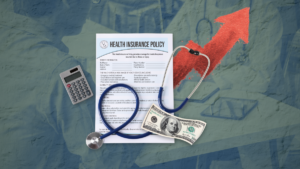Source: NC Policy Watch
On Christmas Eve 2022, North Carolinians not only experienced record-breaking cold weather but thousands of folks also spent hours without power. Duke Energy initiated rolling blackouts due to the power grid being overloaded by the increased demand to keep homes warm during the storm.
In the days leading up to the storm, Duke officials were confident that they had enough capacity for the increased load. They were wrong.
On Tuesday, 10 days after the energy and public relations disaster, the North Carolina Utilities Commission summoned Duke Energy to explain itself.
“We believed we had sufficient power,” Kendal Bowman, president of Duke Energy’s North Carolina operations, told the Utilities Commission – not only to meet peak demand but with more than 2,500 megawatts of reserve – wiggle room.
Not only was energy demand much higher than projected which depleted reserves, but energy output was reduced at two coal-fired plants when instrumentation froze at both units despite being insulated. And Duke couldn’t buy power anywhere, from anyone. Renewable energy sources like solar performed as expected.
In order to prevent a massive multi-state failure Duke instituted the rolling blackouts which were intended to last for under an hour. However, yet another failure in the system that regulates the blackouts caused outages to be much longer.
There was also a failure in communication between Duke and its customers which left homes in the dark with no warning for hours with no idea when power would be restored. Duke was able to restore all power by 4 p.m. on Christmas Eve.
Julie Janson, Duke Energy executive vice president and chief executive officer, apologized to the commission and customers for the crisis. The utility will cooperate with federal and state investigators, she said. “We appreciate how significant this is. … We own what happened.”




